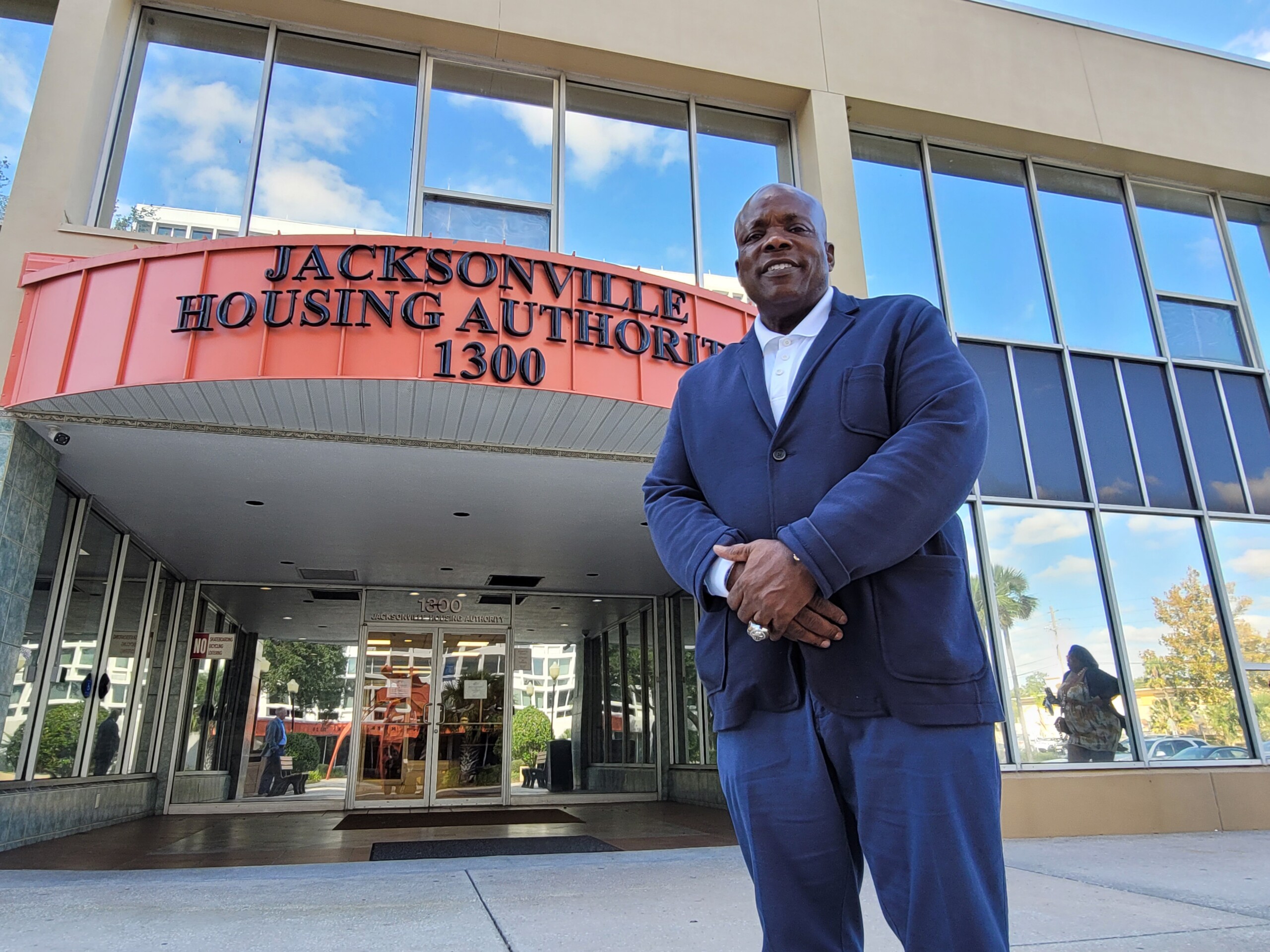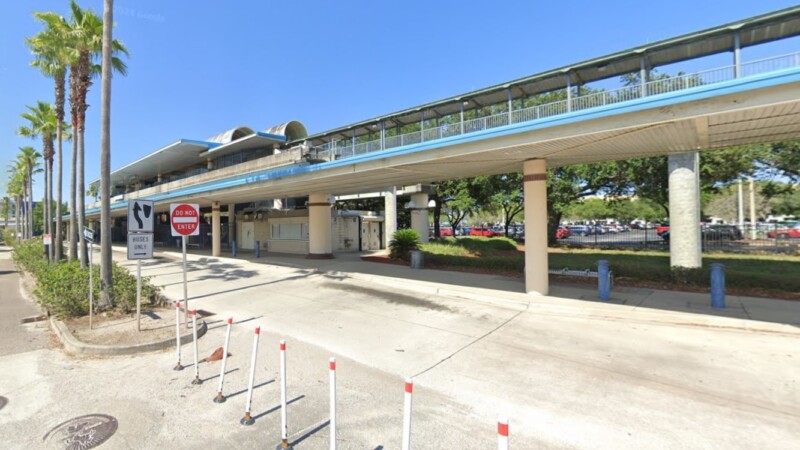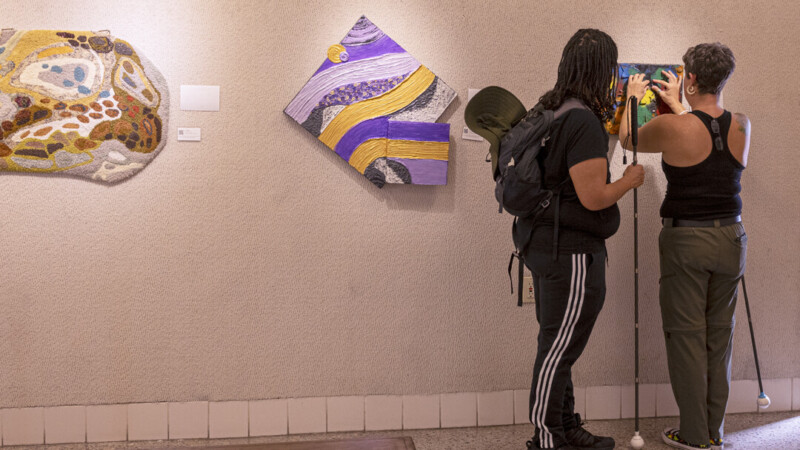Duval County evictions are on track to exceed 14,000 court filings this year — a number that has been rising dramatically compared to prior years. The flow from the court system could place pressure on an already high waiting list for affordable housing, which was closed earlier this year with reportedly more than 147,000 people on it.
In this next part of our series on evictions, Jacksonville Today takes a look at the Jacksonville Housing Authority waiting list, where some face up to a five-year wait.
‘An aggregate number’
Back in July, Jacksonville Housing Authority President and CEO Dwayne Alexander tossed out a fact at a mayoral transition subcommittee meeting that was shocking: He said nearly 150,000 heads of household are on the JHA waiting list for low-income housing in the Jacksonville area. Soon after, the housing authority announced it had closed the list to new applicants.
The wait list number of 147,200 was staggering, but records provided to Jacksonville Today since then show the true number wasn’t quite so high — though the need for affordable housing has grown significantly over the past few years.
After duplicate names were filtered off the list, 136,143 people remained as of Sept. 30, according to a Jacksonville Housing Authority Board of Commissioners management report.
The ‘wait list’ is multiple lists
The length of the waiting list is skewed by the fact that it is the total of multiple lists, and people can appear on more than one of them.
More than half of this year’s total, 77,546 people, are on the two main lists that the housing authority manages: one for public housing the authority owns and maintains and the other for the federally subsidized Housing Choice Voucher Program, formerly known as Section 8 housing. Those vouchers can go to landlords at both privately owned properties and some properties the authority manages.
The numbers clearly reflect a growing need.
For just public housing and “Section 8” housing, the 9,800 people waiting in 2019 had ballooned to 77,000 by September of this year this year, the most recent month for which data was provided. The housing authority didn’t respond to Jacksonville Today‘s requests for the most recent numbers as of this story’s publication.
Then there are waiting lists for other specific types of housing, which account for about 43% of the total “wait list.”
“We have some folks that apply for multiple lists,” Alexander said in his office at the agency’s headquarters. “It’s an aggregate number.”
In other words, a single, working individual might apply for both public housing and the federal voucher program and senior housing.
“So one person could represent maybe three people on the list,” said John Finotti, spokesperson for the housing authority.
The authority administers housing for families who do not top the low-income threshold, which the U.S. Department of Housing and Urban Development defines as less than 80% of the area median income, or $60,250 for a three-person household in Jacksonville.
And the waiting list is fluid, constantly evolving as groups of people float to the top, where the housing authority evaluates their need and eligibility. Alexander says the agency may pull anywhere from 100 to 1,000 people at a time off the list as units become available. Others, he says, drop off because they find other living arrangements in the interim.
Waiting list closed
Joshua Hicks, Jacksonville’s affordable housing and community development director, said recently that the waiting list is still closed to applicants and, as of this week, a sign on the front door of the housing authority administration building warned visitors that no applications for public housing or Section 8 housing were being accepted.
“No one else can be added,” Hicks said.
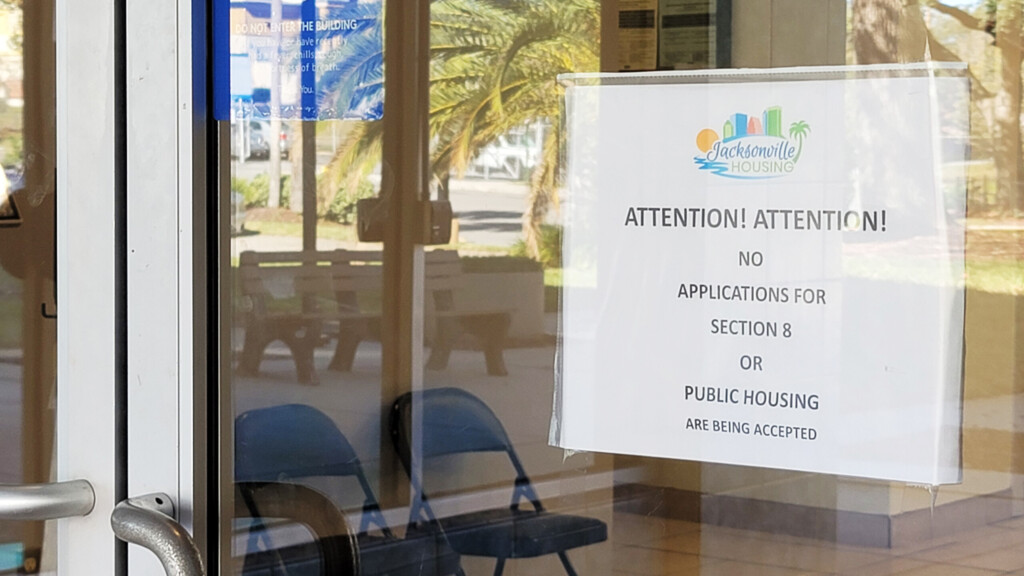
Those on the list who do eventually receive housing will wait anywhere between one and five years — with an average two-year stretch.
Compared to a place like Washington, D.C., where some people have been on the waiting list for affordable housing for three decades, that may not seem so bad. And Jacksonville’s list has seen perpetual movement, according to Alexander.
But where do Duval County’s lowest-income residents stay in the meantime?
That’s a tough answer to pin down, according to Brian Snow, president of the housing division at Sulzbacher, a local nonprofit that helps provide emergency housing for those who find themselves without shelter. Snow says many people who are on the waitlist for permanent housing are staying with friends or family, or possibly shuffling between temporary living arrangements.
That coincides with data from the Florida Department of Education, which keeps track of the number of homeless students in Duval County and across the state. Data show 3,177 homeless students attended public schools in Duval during the 2021-2022 school year, more than 2,500 of whom reportedly stayed in someone else’s housing, while others were in motels, shelters or other spaces.
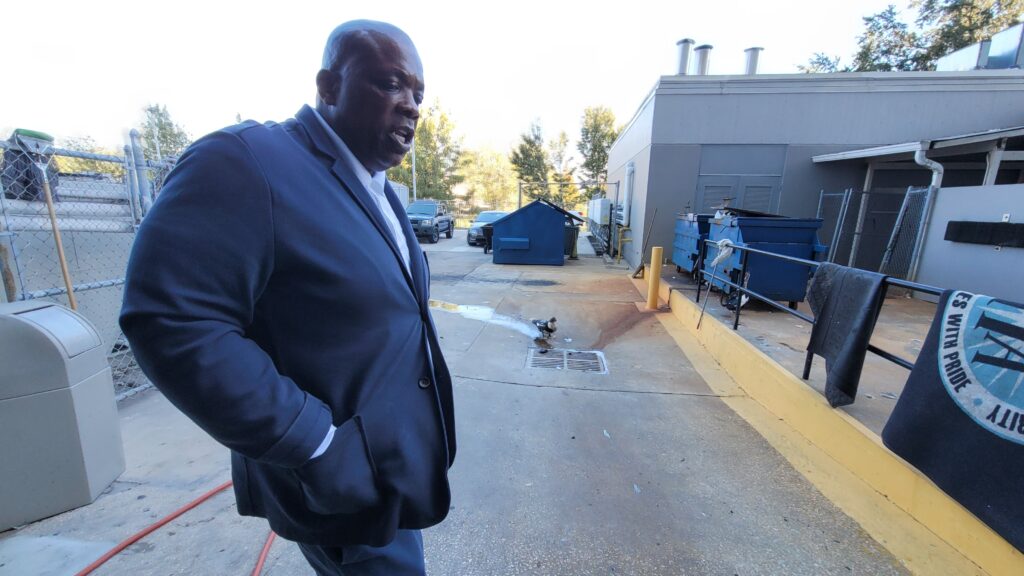
Alexander says the list includes people outside Duval, hoping to land subsidized housing inside the county, but he says local residents take precedence when vacancies open.
Solutions on the way
A thousand people coming off the list at a time doesn’t put much of a dent in the total number, even with the list temporarily closed. But the city and other local organizations and agencies are working toward lessening the number of people who are faced with the need to apply for public housing.
Hicks says steps are underway to create a larger supply of housing.
“It’s about building,” Hicks says.
The authority has also been in the process of buying up properties and rehabilitating them. The agency is looking to work on more than 800 units over the next year and a half and also is seeking even more opportunities. But those units, Hicks says, are often already occupied, so while rehabilitation is helpful for the current residents, the acquisitions don’t help stem the growing need.
“So we need to make sure we’re not only rehabbing … but we’re also building the inventory that we need at the same time,” he says.
Phil Perry, chief communications officer for the city, says Mayor Donna Deegan’s administration and City Council know just how important affordable housing and homelessness solutions are to the community.
After the Council this month approved millions of dollars to enact recommendations by Deegan’s transition task forces, the city is gearing up to spend several million to address homelessness as well as create emergency rental-assistance and eviction-prevention programs.
“The numbers are really dire,” Perry says. “We’ve got to start to move the dial on building inventory, but some of these programs — like more for eviction protection and diversion — are geared to at least try to help in the interim.”
Perry says the city expects to begin getting the funding out into the community by mid-spring and its effect should be measurable by summer.
Nonprofit efforts also are being made to tackle the issue from both long- and short-term perspectives. Among them, United Way of Northeast Florida announced recently that the organization is committing $10 million to improving the Jacksonville ecosystem for housing ownership and affordable housing opportunities, a large portion of which will go toward infill development and preserving “heirs housing,” or homes that have been passed down through families, so families can remain in their neighborhoods without being priced out and potentially adding to the waiting list in yet another way.
Building more housing and emergency cash for people to keep them from getting evicted — these are very expensive propositions, Hicks says. And in the grand scheme, the money set aside this year in the city budget seems like it can barely scratch the surface of what is actually needed.
“We’re never going to solve the crisis,” Hicks says. “But what I want to do is have enough inventory available on a month-by-month basis … (so that) we have enough inventory to cover the demand. Over time, that’ll make a difference, because Jacksonville’s still going to continue to grow.”
Alexander says the community appears to have finally realized what housing authority officials have known for quite some time: that the number of people in line for low-income housing is only going to keep growing if left unchecked.
“So the reality of it is, it’s been out there,” Alexander says. “Nobody really put the focus on it because if you go back five years, how many people are walking around talking about affordable housing? Nobody paid attention to it.”
Now, the housing director says, affordable housing has become a bit of a buzzword.
“But the need has always been there,” he says.
Lead image: Dwayne Alexander stands outside the entrance to the Jacksonville Housing Authority, where he serves as president and CEO. | Casmira Harrison, Jacksonville Today


